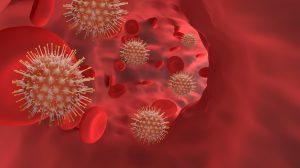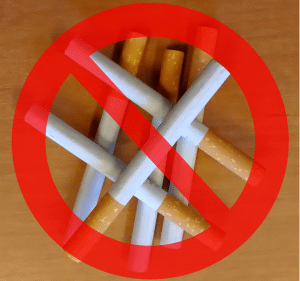Are you thinking a lot about your immune system these days? We don’t blame you: Covid-19 is still plaguing us, and winter is here, bringing the usual cold and flu season upon us. Not only that, but this cold and flu season is most likely going to be a crazy one, since most of us haven’t been around a ton of people for the last year and half. That means our bodies just aren’t quite prepared for all the germs we’re going to be exposed to now that we’re back in school and heading indoors for the winter. It’s understandable if your first reaction is to turn to questionable practices to give your body a boost, but we’re here to debunk some of the myths floating around out there, so you can focus on what will actually keep you healthy into the New Year.
No Magic Bullets

Believe us, we’re sorry to be the bearer of bad news, but there just isn’t any one thing – or even a handful of things – that can magically boost your immune system (sorry, Grandma, the whole cloves of garlic and herbal teas might be good for us, but aren’t going to keep us from getting sick). Most of the things that people suggest to keep you healthy are often just a bunch of hype – that is, unless they’re suggesting all of those boring things, like getting lots of quality sleep, eating healthy foods, exercising, and washing your hands.
Truth is, your immune system is not an organ or an area of the body that you can strengthen like a muscle, or target with vitamins or medications: it’s a complex mix of cells, hormones, and proteins that all work together to fight off illnesses. Some people’s immune systems are naturally stronger than others for some reason, and most people’s simply function best when they’re given all the necessary tools mentioned above.
So, with all that being said, let’s bust some myths!
Vitamin C Is Good for You, So the More the Better, Right?
Yes, vitamin C is definitely an important nutrient when it comes to the functioning of your immune system, but according to Ali Webster, PhD, RD, director of research and nutrition communications for the International Food Information Council, “…[S]tudies have shown that taking megadoses of vitamin C in the form of supplements doesn’t really do us any good when it comes to fighting off a cold or other illness.”
Your body can only absorb a few milligrams at a time, so the recommended daily amounts of vitamin C for adult males in 90mg, and 75mg for females is totally sufficient. In addition, your daily dose of C should ideally be gotten from the food you’re eating (think fresh fruits, leafy greens, and even red peppers!) – after all, blasting your body with Emergen-C or another supplement when you feel the sniffles coming on is not going to be any more helpful than maintaining a good amount of this vitamin in your diet every day. In fact, if you take more than your body needs, you’ll just end up peeing it out, so you’re literally flushing your money down the toilet!
Getting Your Gargle or Rinse On Will Kill Germs
Do you swear by gargling with salt water or vinegar to kill germs and speed up recovery from a virus? Unfortunately, while you might get a little temporary relief from a sore throat by gargling, you’re not going to actually kill any germs.  And how about rinsing out your nasal passages with a Neti pot? You might have even been recommended to do this by your doctor, but the truth is rinsing your nose to kill germs in your upper respiratory passage doesn’t actually work. According to Gary Linkov, MD: “Viruses will frequently lodge in areas deeper in the nose, such as the adenoids, where they cannot be reached with simply washing the nose.” In rare cases, the use of a Neti Pot can actually cause infection, because, according to Linkov, “using tap water to wash the nose regularly puts us at an increased risk of driving additional pathogens into our sinonasal passages.”
And how about rinsing out your nasal passages with a Neti pot? You might have even been recommended to do this by your doctor, but the truth is rinsing your nose to kill germs in your upper respiratory passage doesn’t actually work. According to Gary Linkov, MD: “Viruses will frequently lodge in areas deeper in the nose, such as the adenoids, where they cannot be reached with simply washing the nose.” In rare cases, the use of a Neti Pot can actually cause infection, because, according to Linkov, “using tap water to wash the nose regularly puts us at an increased risk of driving additional pathogens into our sinonasal passages.”
Immune-Boosting Beverages Can Protect You, Or Make You Feel Better
We’ve all seen them: pricey drinks from juices to “enhanced” waters to herbal teas that claim to support your immune system, but these drinks are not worth the money. At worst, when it comes to juices and waters, they can be loaded with sugar or artificial colors and flavors, and at best, when it comes to teas, they’re merely just a warm, soothing drink. With that being said, there has been one study that suggested a polyphenol found in green tea could help T-cells in mice, but it’s not clear if this happens in humans. But in the end, what really matters is staying hydrated, ideally with water: the immune system relies on the bloodstream to transport its cells around the body, which is much harder if you’re dehydrated.
Only Vitamin C, Zinc, and Fresh Fruits Are Necessary or Helpful for Your Immune System
Just loading up on foods high in vitamin C, and dosing yourself with zinc supplements, is far less important than eating a varied, balanced diet of real foods; unfortunately, isolated nutrients aren’t going to be all that helpful. According to Lizzy Swick, RD, “Yes, vitamin C and zinc are important, but you can’t supplement your way out of a bad diet. Once the diet is in place, supplements can, well, supplement.” You also need to know how to use supplements to complement your diet: Swick also points out that taking too much zinc for a long period of time can actually lower immunity, and high-dose zinc supplements are best used at the first signs of a virus.
And one more thing: when it comes to getting in all of your fruits and veggies for the day, don’t stress about always having fresh stuff in your fridge (and it doesn’t have to just be citrus fruits, remember!). Canned and frozen fruits and veggies are a great, easy alternative, and they actually sometimes pack even more nutrition than fresh produce, since they tend to be picked at their peak ripeness.
Exercise Puts Stress on Your Body

You might be thinking, “I’m lifting weights and breaking down muscle fibers,” or “I’m jogging and stressing my joints, so I must be running my body down in some way” – but the opposite is actually true. Exercising lowers the levels of the stress hormone, cortisol, in your body; this is important because if you have cortisol levels that are too high for too long, your immune system could end up taking a hit, making you prone to infections. According to Stephanie Gray, DNP, “studies have shown that 20-40 minutes of moderate activity reduces the risk of upper respiratory infections by 50%.”
It’s important to note, though, that if you are already under the weather, it’s best to stick to more moderate exercise. Again, according to Gray, “If you aren’t feeling well, but think you need to push through [an extreme] workout, this can actually increase your risk of infection by 3-6 times.” As with your diet, it’s all about incorporating healthy habits into your everyday life, not trying to eat, supplement, or exercise your way out of illness once it hits.
Garlic Wards Off Vampires AND Viruses
Yup, it makes your food taste delicious, but unfortunately, garlic is not a cure-all for viruses, so there’s no need to load up on it (and your partner will thank us later). While garlic is definitely good for you, and some nutritionists believe that the sulfuric compounds in garlic help improve immune system function, there is really no definitive proof that these tasty bulbs will keep the sniffles at bay. Again according to Linkov, “There are a few lab studies that show that garlic extract can partially inhibit the replication of the virus in cells. However, there is limited human study evidence that garlic will prevent viral infection in our bodies.” Well, at least you don’t need to ruin date night to stay healthy!
You Need to Take a Daily Supplement, or Load Up on Supplements When You’re Sick
At the risk of sounding like a broken record, staying at your healthiest, and being able to recover as quickly as possible from illness, is all about treating your body right every day. Your immune system needs to be seen as an integrated part of you, not something you can pump full of vitamins. According to Nikola Djordjevic, MD, “Our immune system is a lot more complex than that, and should be viewed more holistically. Not to mention, supplemented vitamins are usually overkill, as our bodies can’t absorb more than a few hundred micrograms per day. Vitamin C, for example, maxes out at a little under 100 micrograms, and everything else is excreted from our bodies through our urine.”
Keeping Yourself Healthy
With all of the above being said, we do want to point out that, while you can’t take a pill or eat a certain food and flip some sort of super immune system switch, there are ways you can improve your immune function over time. That brings us back to that boring, non-hype stuff that keeps you at your healthiest, like:
- Eating a varied, healthy diet of real food
- Moving that body – Remember, exercise helps reduce stress, and stress can actually lower your white blood cell count, and it has been scientifically proven that people who get more exercise get fewer colds.
- Managing stress – Yup, again, you’ve got to keep those cortisol levels down! Always being in fight-or-flight mode is doing absolutely nothing for your immune system (not to mention your life in general!)
- Getting your zzzz’s – While you sleep, your immune system releases substances known as cytokines that you need to fight infection, inflammation, or stress. Sleep deprivation decreases your body’s production of cytokines, meaning you’ll be more vulnerable to illness if you don’t get your daily dose of beauty sleep.

- Kicking some bad habits – It’s pretty clear that smoking is bad for you, and not just because it causes cancer and other diseases. Studies have found that cigarette smoke can interact with viruses, such as the flu, causing lung damage and inflammation, worsening flu symptoms for smokers. Alcohol can also be rough on your body: drinking has also been found in studies to weaken the body’s response against the flu.
The bottom line is, focusing on “boosting” your immune system might actually be the wrong way to think about keeping yourself healthy this season. Instead, you should be focused on how to keep yourself well-rested, well-fed, and in balance, so you can get your whole body working in harmony.
